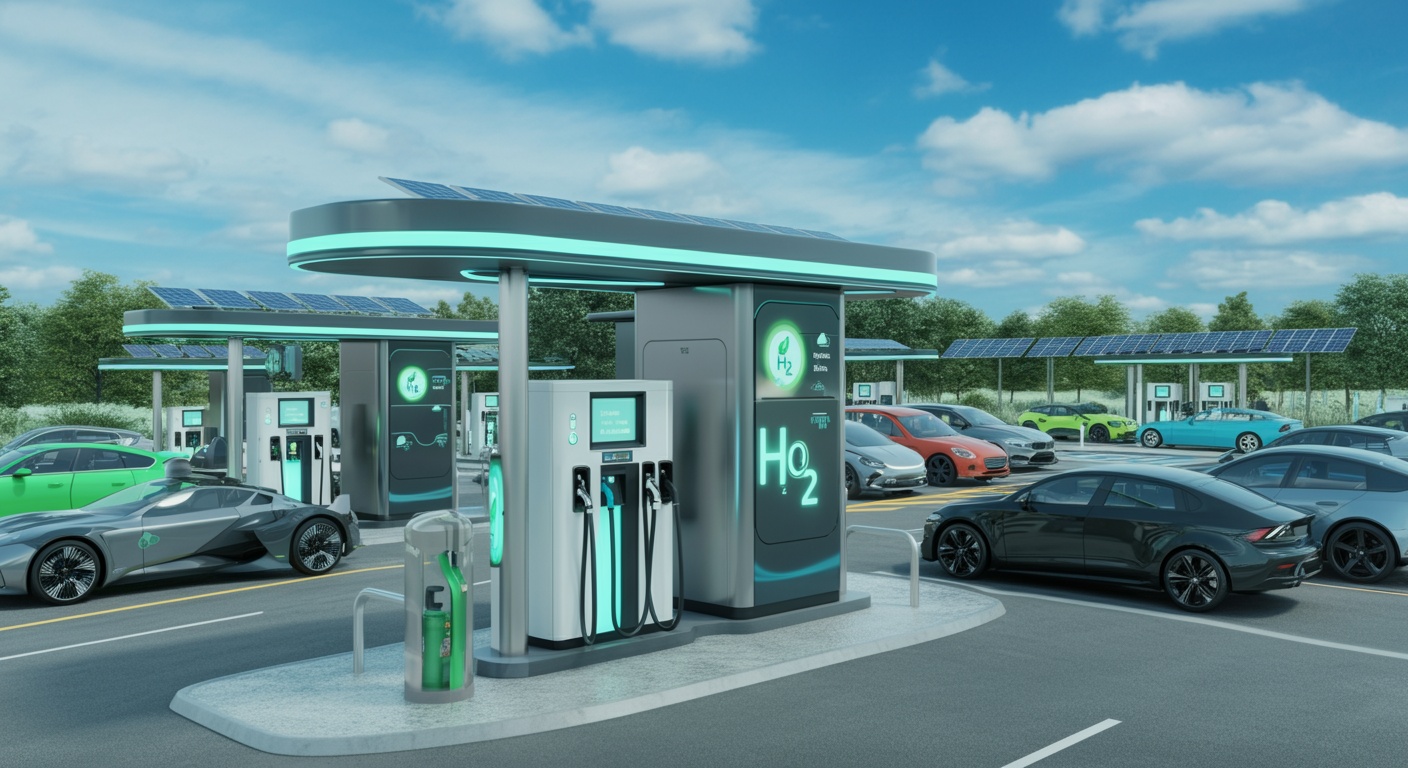Driving Towards a Greener Future: US Invests $635m in EV and Hydrogen Infrastructure
Key Ideas
- The Federal Highway Administration's $635m investment in EV charging and hydrogen fuelling infrastructure across 27 states aims to create sustainable transportation networks and job opportunities.
- The funding supports the installation of over 11,500 new EV charging ports and a network of hydrogen and natural gas fuelling stations, aligning with the US goal of 500,000 public EV chargers by 2030.
- Projects like those in Cherokee Nation, Oklahoma, and Troy, Alabama, demonstrate the focus on community success stories, while corridor expansions such as in Port of Houston, Texas, and the Mid-Atlantic Corridor Initiative emphasize advancements in hydrogen and EV infrastructure.
- By targeting disadvantaged communities, creating economic opportunities, and championing clean transportation, the investments not only contribute to climate goals but also promote a cleaner, healthier, and more equitable future for all Americans.
The United States Department of Transportation’s Federal Highway Administration (FHWA) has unveiled a significant $635m investment to accelerate the expansion of public EV charging and hydrogen fuelling infrastructure nationwide. Funded by the Bipartisan Infrastructure Law, this initiative aims to develop a robust zero-emission transportation network that promotes environmental sustainability, job creation, and equitable access to clean energy technologies. This historic funding supports 49 projects across 27 states, four federally recognized tribes, and the District of Columbia, including the deployment of over 11,500 new public EV charging ports and a network of hydrogen and natural gas fuelling stations. The US target of installing 500,000 public EV chargers by 2030 is well on track to be met ahead of schedule. Federal funding, tax incentives, state contributions, and private-sector investments have driven the surge in accessible chargers, underlining the commitment to a clean energy economy and infrastructure development. The allocated $635m is divided between the Charging and Fueling Infrastructure Discretionary Grant Program and the National Electric Vehicle Infrastructure Formula Program, emphasizing equitable access and community development. Investments in disadvantaged communities aim to promote environmental benefits, reduce transportation costs, and improve healthcare outcomes. Notable projects like those in Cherokee Nation, Oklahoma, and Troy, Alabama, showcase local success stories, while corridor expansions in places like Port of Houston, Texas, and the Mid-Atlantic Corridor Initiative highlight advancements in hydrogen and EV infrastructure. The FHWA's initiatives not only address equity concerns but also create job opportunities and stimulate local economies. By accelerating the adoption of zero-emission vehicles and improving air quality, the US is moving towards a cleaner, more sustainable future.
Topics
Projects
Clean Energy
Job Creation
Environmental Sustainability
Economic Growth
Infrastructure Investment
Community Development
Equity
Transportation Network
Latest News
